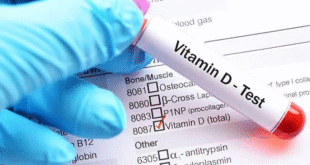Uric Acid Test
Presented by HRTD Medical Institute, Mirpur-10, Dhaka

Introduction
The uric acid test is a crucial diagnostic tool used to measure the amount of uric acid in the blood or urine. Uric acid is a waste product formed from the breakdown of purines, which are naturally present in the human body and in many foods. Monitoring uric acid levels is vital for diagnosing and managing various health conditions such as gout, kidney stones, and chronic kidney disease.
At HRTD Medical Institute, we offer accurate and affordable uric acid testing as part of our routine diagnostic services. With our advanced laboratory facilities and experienced medical professionals, we ensure timely and precise results that help our patients take control of their health.
Chapter 1: Understanding Uric Acid
1.1 What is Uric Acid?
Uric acid is produced when the body breaks down purines. Normally, it dissolves in the blood, travels to the kidneys, and is excreted through urine. However, when the body produces too much uric acid or the kidneys fail to excrete it efficiently, the level in the blood rises, a condition known as hyperuricemia.
1.2 Role of Uric Acid Testing
A uric acid test helps doctors:
- Diagnose gout
- Monitor patients undergoing chemotherapy or radiation
- Evaluate kidney function
- Detect and manage uric acid kidney stones
- Monitor the effects of medications that affect uric acid levels

Chapter 2: Types of Uric Acid Tests
At HRTD Medical Institute, we provide two main types of uric acid tests:
2.1 Serum Uric Acid Test
This test measures the uric acid level in the blood. It is the most commonly used test for:
- Detecting hyperuricemia
- Diagnosing gout
- Monitoring uric acid-lowering treatments
Procedure:
- A blood sample is taken from a vein, usually in the arm.
- The sample is sent to our in-house laboratory for analysis.
Normal Ranges:
- Men: 3.4 to 7.0 mg/dL
- Women: 2.4 to 6.0 mg/dL
- Children: 2.0 to 5.5 mg/dL
2.2 Urine Uric Acid Test (24-hour urine test)
This test measures how much uric acid is excreted in the urine over 24 hours.
Indications:
- Evaluation of frequent kidney stones
- Determining whether excess uric acid is due to overproduction or under-excretion
Procedure:
- The patient collects all urine for a 24-hour period.
- The full sample is analyzed to measure uric acid concentration.

Chapter 3: Why is the Uric Acid Test Important?
The uric acid test can reveal important information about a patient’s metabolism and kidney function.
3.1 Diagnostic Value
- Gout: Uric acid crystals can deposit in joints, causing inflammation.
- Kidney Stones: High uric acid levels can form stones in the kidneys.
- Kidney Disease: Low uric acid excretion may indicate renal impairment.
- Leukemia/Lymphoma Treatment: Monitoring uric acid during cancer therapy is essential as tumor breakdown can elevate levels dangerously.
3.2 Preventive Role
Regular uric acid screening at HRTD Medical Institute helps:
- Prevent future gout attacks
- Manage lifestyle factors that affect uric acid production
- Monitor side effects of medications
Chapter 4: Who Should Get a Uric Acid Test?
Our doctors at HRTD Medical Institute recommend uric acid testing for:
- Individuals with symptoms of gout (joint pain, swelling)
- People with a history of kidney stones
- Patients with chronic kidney disease
- Individuals undergoing cancer treatments
- People with high blood pressure or diabetes
- Patients taking diuretics, aspirin, or chemotherapy
Chapter 5: Symptoms That May Require Uric Acid Testing
- Sudden joint pain, especially in the big toe
- Swelling and redness of joints
- Frequent kidney stone episodes
- Lower back pain or blood in urine
- Fatigue and weakness (if linked to kidney issues)
At HRTD Medical Institute, our experienced physicians will evaluate your symptoms and advise whether a uric acid test is necessary.
Chapter 6: Preparation for the Test
Before undergoing a uric acid test at HRTD Medical Institute, you may be asked to:
- Avoid certain foods: like liver, sardines, red meat, and alcohol for 24 hours
- Stop medications: that affect uric acid levels (under a doctor’s guidance)
- Fast: for a few hours (mainly for the serum test)
Our healthcare providers will give detailed instructions based on your health profile.
Chapter 7: How the Test is Done at HRTD Medical Institute
7.1 Sample Collection
- For blood test: A certified phlebotomist draws blood using a sterile syringe.
- For urine test: You’ll be given a sterile container and instructions to collect 24-hour urine.
7.2 Testing & Reporting
- The sample is analyzed using automated biochemistry analyzers.
- Results are generally available within 4 to 6 hours for serum tests and 24-48 hours for urine tests.
- Our medical staff provides a detailed explanation of the report and next steps.
Chapter 8: Interpretation of Uric Acid Test Results
Understanding test results is essential for proper diagnosis and treatment. At HRTD Medical Institute, our doctors carefully analyze your uric acid levels and provide personalized guidance.
8.1 High Uric Acid Levels (Hyperuricemia)
If your test results show elevated uric acid, it may be due to:
- Gout: A form of arthritis caused by urate crystal buildup in joints.
- Kidney disease: Inability to filter out uric acid effectively.
- High purine intake: From red meat, seafood, and alcohol.
- Certain medications: Like diuretics or aspirin.
- Dehydration: Reduces the body’s ability to flush out uric acid.
- Genetic predisposition
8.2 Low Uric Acid Levels (Hypouricemia)
Though less common, low uric acid levels may suggest:
- Liver disease
- Wilson’s disease
- Fanconi syndrome
- Use of medications like allopurinol, azathioprine, or salicylates
- Poor dietary intake
After receiving your test results at HRTD Medical Institute, our physician will interpret them in the context of your full medical history and current symptoms.
Chapter 9: Causes of Abnormal Uric Acid Levels
9.1 Causes of Increased Uric Acid
- Overproduction of uric acid due to rapid cell turnover (e.g., leukemia)
- Under-excretion due to kidney problems
- High purine diet (organ meats, sardines, shellfish, alcohol)
- Obesity and insulin resistance
- Chemotherapy or radiation therapy
9.2 Causes of Decreased Uric Acid
- Xanthinuria (rare inherited disorder)
- SIADH (Syndrome of Inappropriate Antidiuretic Hormone Secretion)
- Excess fluid intake or diuretics
- Low-protein diets
- Certain inherited metabolic disorders
Chapter 10: Treatment and Management
Once your uric acid levels are confirmed to be abnormal, our doctors at HRTD Medical Institute will recommend a treatment plan based on your specific condition.
10.1 For High Uric Acid (Hyperuricemia)
Medications:
- Allopurinol – reduces uric acid production
- Febuxostat – alternative to allopurinol
- Colchicine – helps manage gout attacks
- Probenecid – increases uric acid excretion
Lifestyle Modifications:
- Weight reduction
- Hydration (8–10 glasses of water daily)
- Limiting alcohol, especially beer
- Reducing red meat and seafood intake
10.2 For Low Uric Acid
Treatment may not be necessary unless an underlying condition is detected. Further tests may be advised to evaluate liver function, metabolic issues, or malnutrition.
Chapter 11: Uric Acid Test and Diet
Diet plays a crucial role in managing uric acid levels. At HRTD Medical Institute, we provide dietary consultations as part of our integrated treatment plan.
11.1 Foods to Avoid (High in Purines)
- Red meats (beef, lamb, pork)
- Organ meats (liver, kidney)
- Seafood (anchovies, sardines, mussels)
- Alcohol (especially beer and spirits)
- Sugary drinks and sweets with high-fructose corn syrup
11.2 Foods to Include
- Low-fat dairy products
- Whole grains (brown rice, oats)
- Fruits and vegetables
- Cherries (may reduce gout attacks)
- Water and herbal teas
Our nutrition experts at HRTD Medical Institute can create customized diet plans based on your medical condition, test results, and preferences.
Chapter 12: Lifestyle Changes to Control Uric Acid
12.1 Physical Activity
Regular exercise helps maintain a healthy weight and improves kidney function, aiding in uric acid elimination. Aim for:
- 30 minutes of moderate exercise, 5 days a week
- Avoiding intense exercise that may temporarily raise uric acid
12.2 Stress Management
Chronic stress can indirectly influence metabolic processes. Relaxation techniques such as:
- Yoga
- Meditation
- Deep breathing
- Counseling
are encouraged at HRTD Medical Institute as part of a holistic care approach.
Chapter 13: FAQs – Uric Acid Test
Q1: Is fasting required for a uric acid blood test?
Answer: Not always, but some doctors may advise fasting for 4–6 hours for more accurate results.
Q2: How long does the test take at HRTD Medical Institute?
Answer: Blood collection takes about 5 minutes. Test results are usually available within 4 to 6 hours.
Q3: Can I take the test while on medication?
Answer: Some medications can interfere with the results. Inform our doctor about all the medicines you are taking.
Q4: Can I take the test during a gout attack?
Answer: Yes, but uric acid levels may be temporarily normal. Our doctors may recommend repeating the test after the flare-up.
Q5: Is the test painful?
Answer: Only mild discomfort is felt during blood sample collection. Our phlebotomists are trained for safe and gentle procedures.
Chapter 14: Why Choose HRTD Medical Institute for Uric Acid Testing?
- Modern Laboratory Equipment: Fully automated analyzers ensure accurate and fast results.
- Experienced Staff: Our team includes certified pathologists, lab technicians, and physicians.
- Affordable Pricing: Competitive test rates with no compromise on quality.
- Patient-Centered Care: We provide detailed test explanations and follow-up care.
- Central Location: Easily accessible at Section-6, Block-Kha, Road-1, Plot-11, near Metro Rail Pillar-249, Mirpur-10, Dhaka-1216.
For appointments or inquiries, contact us at:
📞 01797522136 | 01987073965 | 01784572173
Conclusion
The uric acid test is more than just a laboratory measurement—it is a window into your body’s metabolic and kidney health. Whether you are experiencing symptoms of gout, managing chronic kidney disease, or simply undergoing a regular health checkup, getting your uric acid levels tested can provide crucial insights.
At HRTD Medical Institute, we are dedicated to delivering reliable diagnostic services supported by compassionate patient care. Your health is our priority, and our goal is to empower you with the information and tools needed to lead a healthier life.
 Pathology Training Institute in Bangladesh Best Pathology Training Institute in Bangladesh
Pathology Training Institute in Bangladesh Best Pathology Training Institute in Bangladesh




